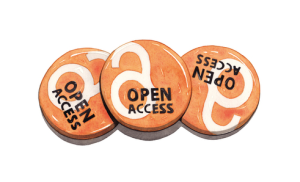By Lilian Nassi-Calò
At the beginning of the years 2000s the abusive increase in scientific journal subscription prices, especially in the areas of science, technology and medicine, gave rise to what became known as the serial publications crisis. This fact has catalyzed the development of the open access movement and the emergence of initiatives like SciELO and PubMed Central in 1998 and the Public Library of Science in 2000, to name only the relevant pioneers.
After 15 years, open access consolidates itself as business model and publication policy of research outcomes financed by public resources worldwide, supported by mandates of institutions, funding agencies and decision makers.
The abusive subscription prices, however, remain. Gerard Meijer, president of Radboud University (The Netherlands), said in his presentation at the Workshop on Alternative Open Access Publishing Models (AlterOA), held in October 2015 in Brussels, Belgium, that “the subscription model is very sustainable for publishers, but not to universities and libraries”. In fact, at the same event, the League of European Research Universities (LERU) issued a statement classifying as “financially unsustainable” the current academic publishing system, stating that not even the prestigious – and wealthy – Harvard University can afford the current system of scholarly publishing, let alone the others. One of the deleterious consequences of this business model is that libraries are being forced to discontinue subscriptions of many journals, penalizing, thus, their researchers.
This concern is shared by presidents and rectors of universities and libraries in the European Union, even because it has more profound consequences in the whole process of scientific communication than it may seem at first glance.
The workshop AlterOA brought together experts from academia, development agencies and managers of universities and research institutions to discuss the future of open access and its different models and trends in scientific publication. Open access has brought undeniable benefits to the academic community and society, but they are still numerous challenges to be faced toward the wide dissemination and sharing of knowledge:
- University libraries in charge of administering the payment of article publishing charges (APCs) face difficulties to comply with different open access mandates imposed by funding agencies, generating a huge administrative burden;
- The pressure to publish is intensified to the extent that a growing number of research authors and the current system of scientific communication that associates quality to high-impact journals. Therefore, power, in this system, has changed from the hands of learned societies to the publishers’, as mentioned Jean-Claude Guédon in his speech, providing them with influence to direct the course of research. “We, scientists, must regain control …” adds Meijer in this regard.
- The highly competitive nature of scientific publishing system preclude a greater degree of collaboration between researchers and their institutions. Open access publishing, by definition, tends to encourage cooperation as it advocates that everyone can use the research outcomes, and puts all researchers on an equal basis with regard to access to scientific literature, while enabling more researchers to compete in equal.
- One of the main goals of open access mandates for public funded research is to maximize its impact through widespread dissemination. This changes the balance of power from commercial publishers to open access initiatives, as the Open Library of Humanities. Even operating with profitable business models, open access publishers do not come close the billing of giants as Elsevier or Springer1.
- The EU is firmly determined to make open access becomes the norm of academic publishing, as well as curb abusive collections of periodicals and APCs signatures. For this, decision makers and politicians are using their authority to mainly put pressure on publishers to reach agreements beneficial to the institutions and funders.
The workshop AlterOA brought together representatives from innovative initiatives, business models and open access solutions in the EU and other regions. Some are reported below:
SciELO
The SciELO program brings together over 1,000 peer-reviewed open access journals (Gold Route) from 15 Latin American countries, besides Portugal, Spain and South Africa. The platform operates as a meta-publisher reducing costs, bringing technological innovation and maximizing visibility, as well as adding a quality and prestige seal. The program is led by the São Paulo State Research Foundation (FAPESP) and its operation is decentralized and funded by development agencies and ministries of the countries where the SciELO Network operates. The program has been searching self-sustainability by minimizing publishing services and publication costs and converging different funding sources.
Open Library of Humanities
OLH is a publisher of articles and open access journals in the humanities funded by research libraries that intend to reduce journals subscriptions costs and APCs. A fee paid by library partners from Europe, US and other regions cover the publication costs and assigns participation in the OLH governance, which receives funding from the North-American Andrew W. Mellon Foundation. OLH plans to attract new journals to its platform, incorporating technological innovations as altmetrics and tools to annotate and translate publications.
Open Access Network
The Open Access Network seeks, through partnerships with research institutions, scientific societies, libraries and university publishers, to publish and disseminate research results, primarily in the social sciences and humanities, in open access. The network, which currently has 40 partners in the United States, seeks to raise funds from educational institutions in order to finance all stages of scientific communication, from publication to preservation.
The BMJ
The British Medical Journal is the UK’s leading medical journal published in open access (online version) by the British Medical Association. The journal operates with APCs, and its main source of income is advertising and subscriptions to the print version. The commitment of the journal to open access is evidenced by pioneering attitude to require sharing of patients’ data for publishing clinical trials.
Pay what you want
The University of Munich, Germany, uses an open access publishing pricing called Pay what you want (PWYW), in which the decision on the APC value to be paid lies with the authors. A pilot study with The Surgery Journal is being conducted by university researchers. The results of a preliminary analysis are promising, indicating that the system may be financially viable. Not totally unprecedented in the publishing industry, however, Taylor & Francis is using a similar mechanism named Cogent OA.
Sponsored Consortium for Open Access Publishing in Particle Physics
SCOAP3 is a partnership created by CERN (European Organization for Nuclear Research which operates the Large Hadron Collider on the border of Switzerland and France) by demand of the scientific community that includes more than three thousand research centers, intergovernmental organizations, libraries, and funding agencies in more than 47 countries. The consortium, in force since January 2014, made possible the operation of key-journals in particle physics in open access (Gold Route) at no cost to authors, through agreements with major publishers. Most of the funding comes from library budget saved from journal subscription fees. Each country contributes according to its scientific production in the area, and so far, the consortium financed the publication of some 9,000 articles in 10 participant journals, paying very favorable APCs negotiated with the publishers (about € 1,000). Even researchers from institutions not affiliated to the project benefit from the agreement, which has helped approximately 20,000 scientists worldwide.
Transition to open access
The Max Planck Digital Library conducted a recent study on open access costs and concluded that global transition of resources spent in journals subscription to cover APCs in open access is financially viable. It is not a business model specifically, but rather evidence that subscription system is making institutions spend more than they would if all scholarly publication was open access. Thus, the Library encourages institutions to stop paying for journal subscriptions and use the resources in open access models, but it does not consider the resistance of publishers to a sudden radical change in their business models.
Concluding remarks
The solutions and alternatives presented in AlterOA illustrate the wealth of ideas and proposals to maximize open access in scholarly publishing. Some initiatives are established for over a decade (e.g. SciELO), and there are others newer and experimental (Pay what you want), but many already show to be economically sustainable, as SCOAP3. The adoption of any of the proposed models would drastically reduce the financial pressure on academic libraries and research institutions, and would have immediate positive effects on scientific, economic and social development of nations.
Note
1. Elsevier made €3.6 billion and Springer €3 billion in 2014. PLoS made €45.8 million in the same year. Source: European Commission. Alternative Open Access Publishing Models: Exploring New Territories in Scholarly Communication Report on the workshop held on 12 October 2015 at the European Commission Directorate-General for Communications Networks, Content and Technology by Adam Smith. December 2015.
References
COP, N. Can monies spent globally on journal subscriptions be completely transitioned to an OA business model to free the journals?. SciELO in Perspective. [viewed 02 January 2016]. Available from: http://blog.scielo.org/en/2015/05/26/can-monies-spent-globally-on-journal-subscriptions-be-completely-transitioned-to-an-oa-business-model-to-free-the-journals/
European Commission. EC Workshop on Alternative Open Access Publishing Models. European Commission. Europe 2020 Initiative. 2015. Available from: http://ec.europa.eu/digital-agenda/en/news/save-date-12-oct-ec-workshop-alternative-open-access-publishing-models
FAUSTO, S. The Evolution of Open Access: a brief history. SciELO in Perspective. [viewed 31 December 2015]. Available from: http://blog.scielo.org/en/2013/10/21/the-evolution-of-open-access-a-brief-history/
NASSI-CALÒ, L. The BMJ requires data sharing to publish clinical trials. SciELO in Perspective. [viewed 02 January 2016]. Available from: http://blog.scielo.org/en/2015/09/23/the-bmj-requires-data-sharing-to-publish-clinical-trials/
External links
Max Plank Digital Library – <http://www.mpdl.mpg.de/en/>
Open Access Network – <http://openaccessnetwork.org/>
Open Library of Humanities – <http://www.openlibhums.org/>
Pay what you want – <http://www.en.uni-muenchen.de/news/spotlight/2015_articles/spann_paywhatyouwant.html>
SciELO – <http://www.scielo.org/>
Sponsoring Consortium for Open Access Publishing in Particle Physics – <http://scoap3.org/>
Taylor and Francis Cogent OA – <http://editorresources.taylorandfrancisgroup.com/introducing-cogent-oa/>
The BMJ – <http://www.bmj.com/>
 About Lilian Nassi-Calò
About Lilian Nassi-Calò
Lilian Nassi-Calò studied chemistry at Instituto de Química – USP, holds a doctorate in Biochemistry by the same institution and a post-doctorate as an Alexander von Humboldt fellow in Wuerzburg, Germany. After her studies, she was a professor and researcher at IQ-USP. She also worked as an industrial chemist and presently she is Coordinator of Scientific Communication at BIREME/PAHO/WHO and a collaborator of SciELO.
Translated from the original in portuguese by Lilian Nassi-Calò.
Como citar este post [ISO 690/2010]:

















Pingback: Open access as a sustainable alternative to scholarly communication | SciELO in Perspective – Veille juridique
Read the comment in Portuguese, by Luiz:
http://blog.scielo.org/blog/2016/01/14/o-acesso-aberto-como-alternativa-de-sustentabilidade-na-comunicacao-cientifica/#comment-22445